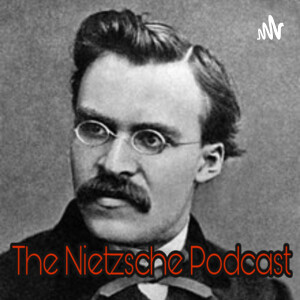
From all accounts, Nietzsche did not read nor comment upon the work of Ibn Khaldun, outside of a few remarks from Schopenhauer in one of his essays that Nietzsche might have read. But what we find in his Muqaddimah is a theory of cyclical history, in which many of the key principles of Nietzsche's political philosophy would find agreement. Ibn Khaldun was a historian from North Africa whose work sought to explain why it was that the same pattern seemed to repeat ad infinitum. The Bedouin desert tribes would overwhelm one of the settled cities of the Mediterranean, from time to time, then establish a new city there. For a time, the culture of the new city would be like that of the Bedouins in the desert. But, eventually, a sedentary culture set in, over the course of several generations, and the inhabitants grew complacent, became incompetent, and eventually found themselves overthrown by another desert tribe, and the process would then repeat. In his studies, Khaldun arrives at the concept of asabiya, or the capacity for collective power, which can be very useful for a Nietzschean perspective on social power structures. This concept of asabiya means, literally, 'group feeling', and describes the extent to which the individuals feel themselves to part of a unified, coherent group, and are thus able to act as instruments of the group, and coordinate their actions as a team. Asabiya increases in harsh conditions, and declines in conditions of luxury, and thus the cycle of empires is set into motion - "This is how God proceeds with His creatures."
Just as Nietzsche suggests the idea of all things returning eternally, Khaldun's writing brings this idea into the historical and political sphere. But Ibn Khaldun is significant because he presents this not only as a poetical idea, but as a pattern based on observable facts. There are many, many observations and anecdotes in the Muqaddimah, and we will not be able to cover it all, so we shall focus on the points most relevant to the ideas covered this season. This will be our first journey into a work outside the Western Canon, into one of the most important thinkers of the Near East. Join me in exploring the dynamics of history, as we jump into the basic ideas of the Muqaddimah.
view more
More Episodes
82: Blaise Pascal’s Faithful Calculations
 2024-01-23
2024-01-23
 2024-01-23
2024-01-23
81: Michel de Montaigne - “What Do I Know?”
 2024-01-16
2024-01-16
 2024-01-16
2024-01-16
80: Gilles Deleuze, pt. 2: Becoming-Active
 2024-01-02
2024-01-02
 2024-01-02
2024-01-02
The Dionysmas Special
 2023-12-23
2023-12-23
 2023-12-23
2023-12-23
78: Hegel’s Master-Slave Dialectic
 2023-12-05
2023-12-05
 2023-12-05
2023-12-05
76: Nietzsche’s Apology
 2023-11-21
2023-11-21
 2023-11-21
2023-11-21
75: Socrates’ Apology
 2023-11-14
2023-11-14
 2023-11-14
2023-11-14
73: The Power to Forget
 2023-10-24
2023-10-24
 2023-10-24
2023-10-24
Wandering Above A Sea of Fog #2
 2023-10-10
2023-10-10
 2023-10-10
2023-10-10
012345678910111213141516171819
Create your
podcast in
minutes
- Full-featured podcast site
- Unlimited storage and bandwidth
- Comprehensive podcast stats
- Distribute to Apple Podcasts, Spotify, and more
- Make money with your podcast
It is Free
- Privacy Policy
- Cookie Policy
- Terms of Use
- Consent Preferences
- Copyright © 2015-2024 Podbean.com






